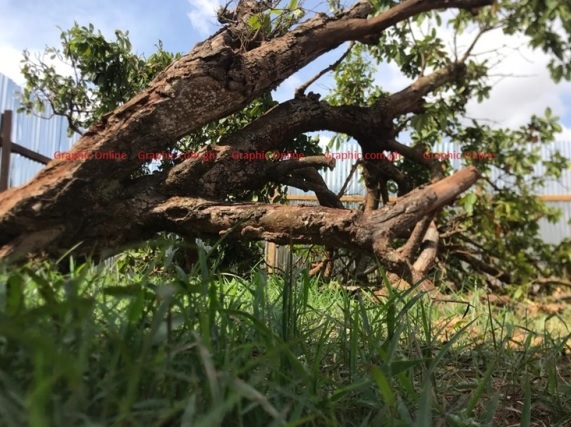
Komfo Anokye cola tree cutting suspect meets bail condition
Solomon Amponsah, the accused person in the case of the cutting of the over 300-year-old historic cola tree (bese) said to have been planted by the famous Okomfo Anokye, fetish priest at Feyiase in the Ashanti region, has met the bail conditions after spending nearly a month in custody.
Despite being granted GH¢20,000 bail with a surety by the Atasemanso Circuit Court, Amponsah had faced difficulties in securing his release until recently.
In court on Wednesday, December 6, 2023, the prosecution amended the charge sheet from the initial charge of unlawful damage to reflect the illegal felling of the tree.
The suspect pleaded not guilty to this new charge as the presiding judge, Gloria Mensah Bonsu adjourned the case to December 28, ordering the prosecution to file disclosures and other documents related to the trial.
- Related:
- Historical cola tree believed to have been planted by famous Komfo Anokye 300 years ago cut down
- Pastor's name pops up as the one who contracted 'town boys' to cut down Okomfo Anokye cola tree
Background
Authorities launched a manhunt for those responsible for cutting down the famous 300-year-old kola tree, believed to have healing powers,. The tree was at Feyiase in the Bosomtwe District.
The tree, rooted in the Ashanti Kingdom’s history, grew at the spot where renowned priest Komfo Anokye supposedly spat a kola nut in the early 1700s.
Local beliefs attribute healing properties to the black and white seeds of the kola tree. The tree, situated in the middle of a major road connecting Kumasi to Lake Bosomtwe, was spared during highway construction and was a cherished tourist attraction.
Ghanaians expressed outrage as images of the felled tree circulated online. The reason for its recent cut remains unclear.
The Battle of Feyiase, a significant historical event in the Ashanti Kingdom’s struggle for independence against the Denkyira Kingdom, took place at the same site.
The tree’s presence served as a tangible link to the region’s history and cultural heritage.
The director of research at Manhyia Palace, Osei-Bonsu Safo Kantanka, had emphasized the historical importance of the tree’s location in the Ashanti Kingdom’s narrative.

 Click the link to read your copy.
Click the link to read your copy.